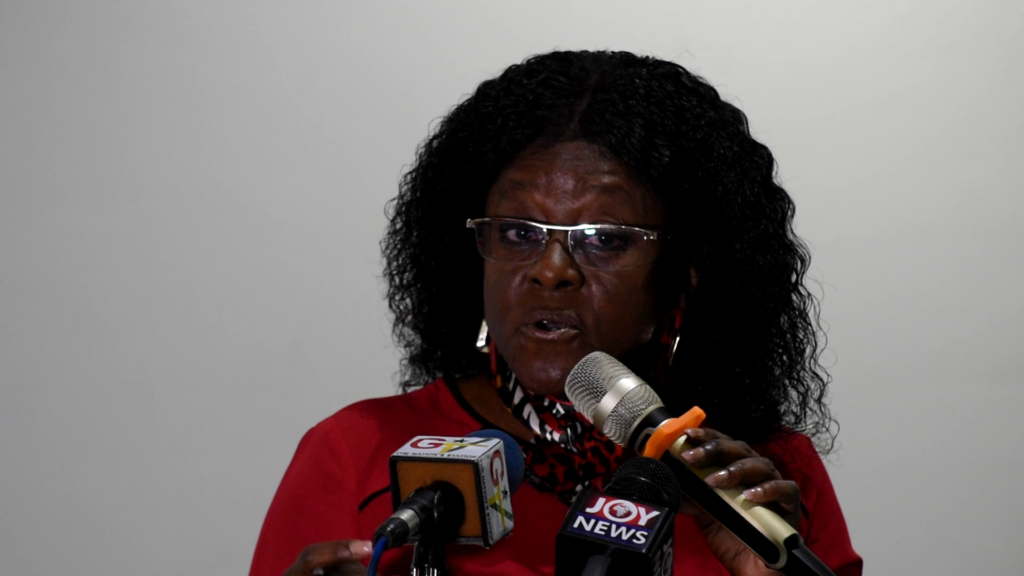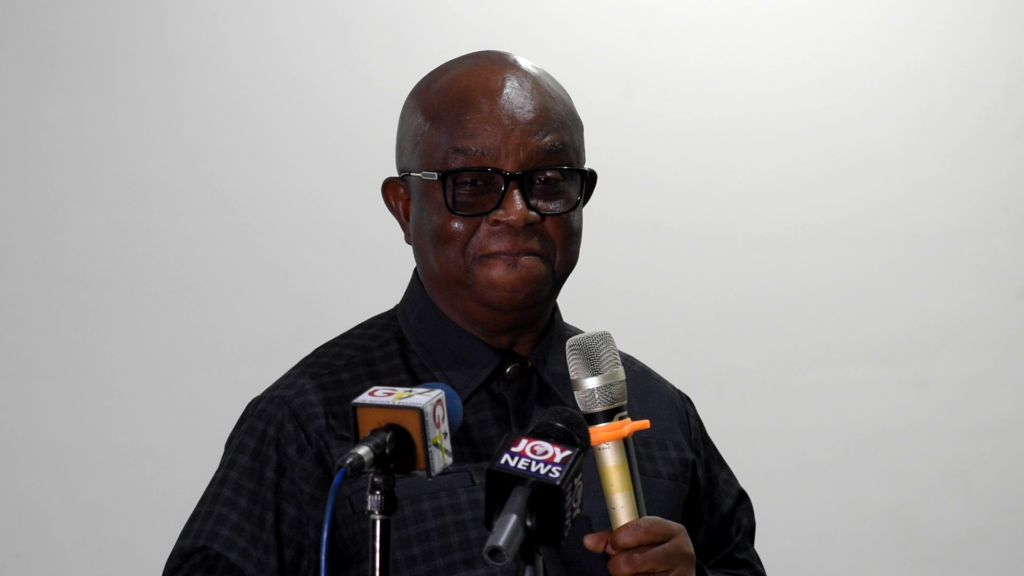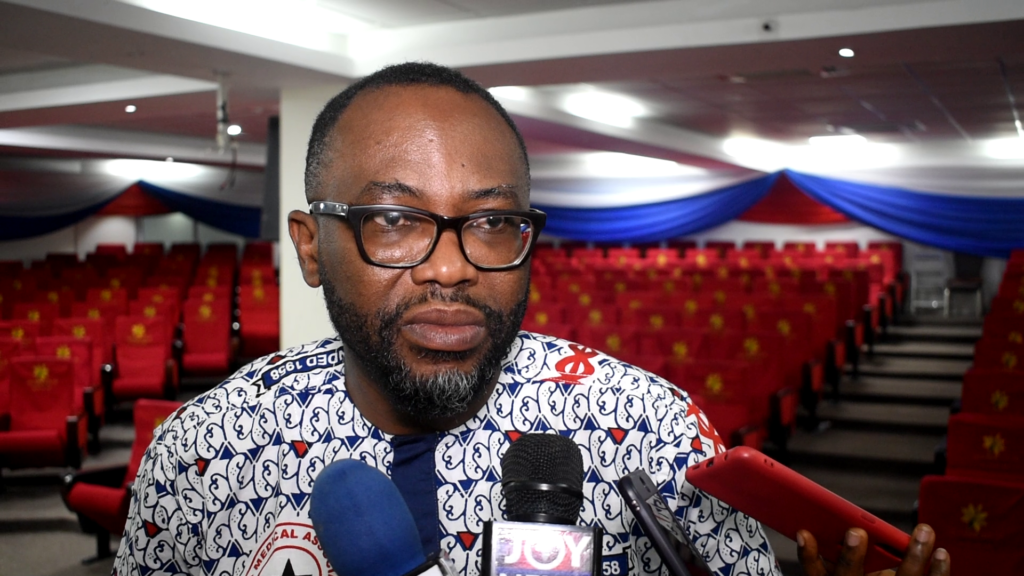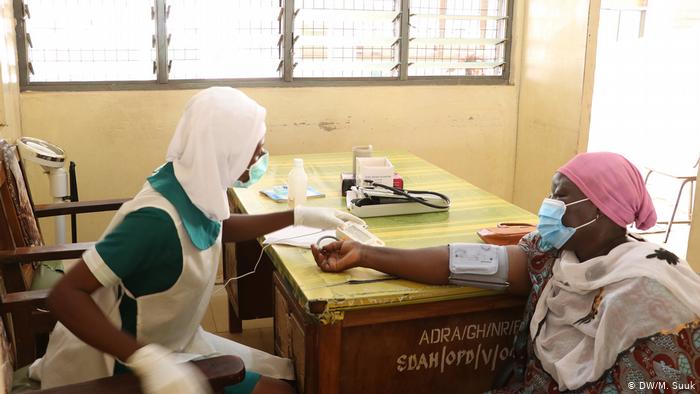
Audio By Carbonatix
Stakeholders have identified ineffective communication as the main cause of misunderstanding between patients and health workers.
This came to light at the 22nd Annual Public Lecture of the Ghana Medical Association in the Volta Regional capital of Ho.
The event was on the theme “Healthcare Worker-Patient Relationship in Contemporary Times”.
Over the years, there has been a public outcry on the alleged unprofessional conduct of some health workers at facilities across the country.
This, in some cases, has led to legal tussles on medical negligence, and other complaints.
The development has created a bad image for health workers and reduced public confidence in the country's health system, with reports suggesting that some tend to access healthcare from traditional healers, churches or even decide to stay at home with their illnesses.
Given this, the Ghana Medical Association decided to discuss the grievances of patients and find solutions at its 22nd Annual Public Lecture.
The Director of the Institutional Care Division of the Ghana Health Service, Dr. Samuel Kaba, underscored the importance of educating the citizenry on their rights and responsibilities when accessing healthcare.
He noted that there is the need for intensified engagement with the public on the numerous charters and policies formulated to streamline healthcare worker-patient relations.
He believes this would expose both parties to their respective roles in ensuring effective service.
Dr. Samuel Kaba stated that health workers found culpable of unprofessional conduct would be dealt with according to the laid down regulations.
In a keynote address, a Counsellor at the University of Cape Coast, Prof Linda Dzama Forde, identified good communication as a key factor in great caregiving.
She said health workers must pay particular attention to patients and adopt the best communication practices during consultations.
She expatiated 3 types of communication; verbal, para-verbal and non-verbal.

Prof. Forde stressed how health workers are negligent about non-verbal and para-verbal communications which have to do with body language and the tone of one's voice respectively.
“Consider this scenario: a doctor enters an exam room to meet a patient. She avoids eye contact with the patient. With a worried expression, she taps her pen on the counter and as the patient speaks, she checks out a message on her phone.
The tapping of the pen, lack of eye contact and the engagement with the phone all communicate messages to the patient. The doctor is either distracted or in a hurry to leave.
She obviously would prefer to be somewhere else or be doing something else rather than be with this patient. She has set the pace for poor communication with the patient”, she narrated.
Prof. Forde, therefore, implored healthcare workers to endeavor to be professional in their line of duty and always have respect for their patients irrespective of their gender, colour, religious belief, ethnic background, or political affiliation.
“When the HCW makes a legitimate effort to empathize with the patient, good communication will be established effectively. And when that happens, the whole caregiving process will become much smoother and much simpler”, she stressed.

The Volta Regional Minister, Dr. Archibald Letsa, reechoed good communication during consultations at the heath facilities.
He said that giving the patient a listening ear and enough attention would complement their treatment and make them have confidence in the caregiver.
“They want us to listen to them. Many of them who are coming just want to spend some time with you to express their frustration and everything, they want you to listen”, he said.
There was a panel discussion on health worker-patient relationships which featured professionals and patients who shared their experiences at the health facilities.

The President of the GMA, Dr. Frank Serebuor, said a policy document would be put together on the issues that came up at the public lecture to streamline operations at the health facilities to change the narrative.
He implored healthcare workers to eschew all forms of unprofessional conduct in their work delivery and ensure patients are given the best of care and attention.
This, he said, would prevent the occurrence of patients complaining and hauling healthcare workers to court for unprofessional conduct.
“We advocate that this should be the beginning of the change, so that at the end of the day, every single health worker, be it the cleaner, through to the security man to the nurse, doctor, pharmacist, we can all move to a point where we can say that we have a very good relationship with our patients and that we are one family. And that is what we want”, he stressed.
Latest Stories
-
Ghana’s new envoy to U.S. and diaspora lawyers to launch ‘Law Day’ for citizens
5 hours -
Mahamud Iddi wins TCL Electronics worth GH¢100,000 in EGL’s Akye3de3 Kese3 Promotion
7 hours -
Lands Minister, NAIMOS mourn fallen soldier killed during anti-galamsey operation in Obuasi
7 hours -
Ghana Impact Project donates $20k to restore mobility for children
7 hours -
JoyNews’ Kwaku Asante named Best Radio and TV Journalist in Parliamentary Reporting
8 hours -
Education Ministry updates EMIS indicators to strengthen ICT integration in schools
9 hours -
Interior Ministry declares Christmas, Boxing Day and New Year’s Day public holidays
9 hours -
President Mahama directs Finance Ministry to disburse $78m for completion of Takoradi–Agona-Nkwanta road
9 hours -
Interior Minister lauds NIA staff for dedication, pledges continued government support
9 hours -
First Atlantic Bank will run a “proper and decent business” to protect shareholder value – CEO
10 hours -
First Atlantic Bank targets African expansion as IPO strengthens capital, governance
10 hours -
First Atlantic Bank CEO attributes IPO and GSE listing decision to renewed confidence in Ghana’s economy
10 hours -
GPL 2025/26: Bechem United end All Blacks 6-game unbeaten run
10 hours -
Eggs fly off shelves as shoppers throng The Multimedia Group’s X’mas Egg Market on final day
11 hours -
Bankable energy: Why Africa’s downstream sector is the next global investment frontier
11 hours

